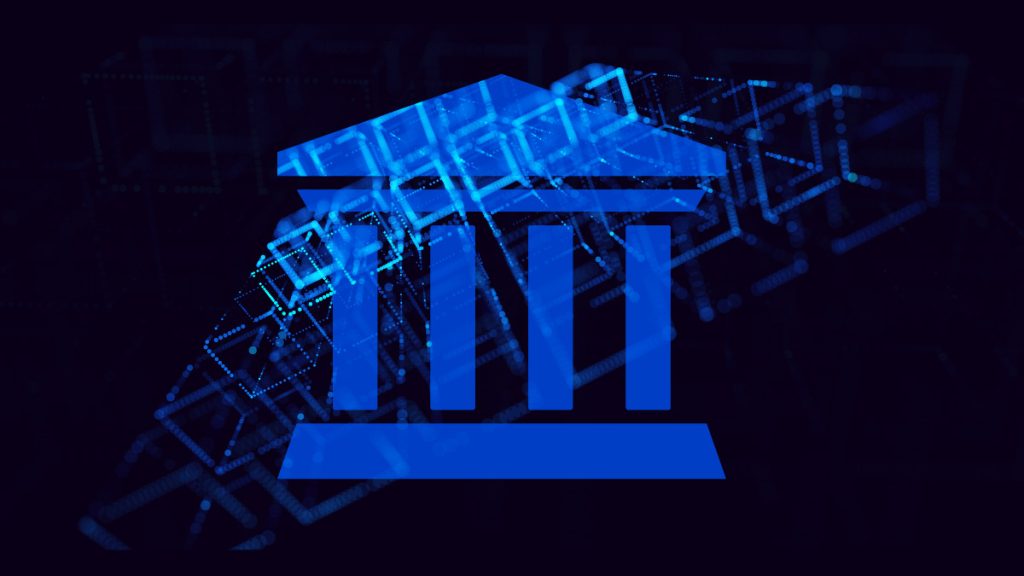
Blockchain is the ultimate disruptive technology, capable of decentralizing power and creating a more transparent and equitable society.” These words by Don Tapscott, an influential author and blockchain expert, capture the essence of how blockchain technology can transform industries and the world as we know it. At the heart of blockchain lies decentralization, which enables a trustless system where transactions are secure and transparent. However, as governments around the world grapple with the implications of blockchain, a critical question remains: will they allow blockchain to succeed if it doesn’t benefit them? Bellow we will delve into the intersection of blockchain and government, exploring the challenges and opportunities of decentralization and examining the role of governments in the future of blockchain technology.
The Politics of Decentralization
Blockchain technology is a transformative innovation that has the potential to revolutionize many industries, including the government sector. At its core, blockchain is a decentralized and transparent system that enables secure transactions and record-keeping. This technology has the potential to prevent government corruption, increase transparency, and improve the efficiency of public services. However, the adoption of blockchain technology by governments worldwide remains a complex and ongoing process, and many challenges still need to be overcome.
Decentralization is one of the core principles of blockchain technology. Unlike traditional centralized systems, where a central authority controls the system, blockchain operates on a decentralized network, where every participant in the network has equal control. This means that no single entity can manipulate the system or alter its records, making it secure and transparent.
By implementing blockchain technology, governments can increase transparency and accountability. Blockchain provides a remarkable level of transparency because every transaction is recorded on a public ledger that can be audited by anyone. This means that government officials can no longer manipulate records or cover up their activities. Instead, all transactions are recorded on an immutable ledger, making it impossible to alter or delete records without the consensus of the entire network.
Another significant benefit of using blockchain technology in the government sector is that it can improve the efficiency of public services. Blockchain technology provides a high level of automation, which can help reduce bureaucracy and streamline processes. For example, blockchain-based land registries can automate the transfer of property titles, making the process faster, cheaper, and more efficient. Similarly, blockchain-based voting systems can eliminate the need for paper ballots, reducing the chances of errors and fraud.
The Power Game
Blockchain technology has the potential to revolutionize the way we transact, store data, and govern ourselves. Its decentralized nature offers unparalleled security and transparency, making it a powerful tool for businesses, individuals, and governments alike. However, the question remains: will governments allow blockchain to succeed if it doesn’t benefit them?
The answer is complex and multifaceted. On the one hand, governments have a vested interest in maintaining control over their economies, finances, and political systems. Blockchain’s decentralization threatens to upend traditional power structures, potentially eroding the influence and authority of governments. Moreover, the anonymity and privacy afforded by blockchain technology could make it harder for governments to monitor and regulate financial transactions, potentially facilitating illegal activities such as money laundering and tax evasion.
On the other hand, governments also recognize the potential benefits of blockchain technology. Its transparency and immutability make it an ideal tool for auditing government spending and preventing corruption. Its smart contract functionality could streamline bureaucratic processes and reduce administrative costs. Moreover, the use of blockchain technology could attract investment and talent to a country, driving economic growth and innovation.
So, will governments allow blockchain to succeed? The answer is likely to depend on a variety of factors, including the specific use case for blockchain technology, the geopolitical context, and the political climate of the country in question. In general, governments are likely to be more open to blockchain technology if it aligns with their strategic interests and can be harnessed for their own benefit.
However, the success of blockchain technology ultimately depends on its ability to create value and solve real-world problems. If blockchain can demonstrate its utility and effectiveness in driving positive social and economic outcomes, governments will be hard-pressed to ignore it. Moreover, the growing global interest in blockchain technology suggests that it is becoming increasingly difficult for governments to resist its adoption.
Final Thoughts
The relationship between governments and blockchain is complex and evolving. While governments may be wary of decentralization, they also recognize the potential benefits of blockchain technology. Ultimately, the success of blockchain will depend on its ability to create value and solve real-world problems. As such, the development of blockchain technology must be guided by a commitment to creating positive social and economic outcomes, rather than simply seeking to disrupt established power structures.
Inside Telecom provides you with an extensive list of content covering all aspects of the tech industry. Keep an eye on our Web3 section to stay informed and up-to-date with our daily articles.